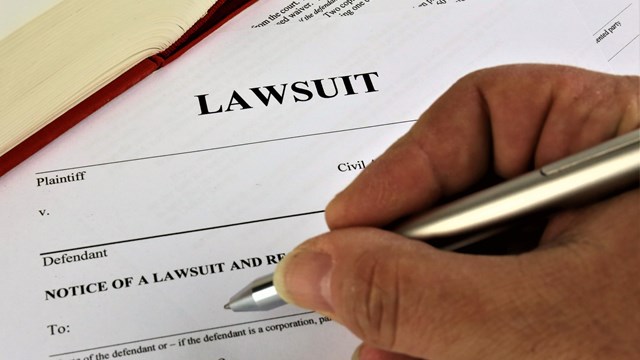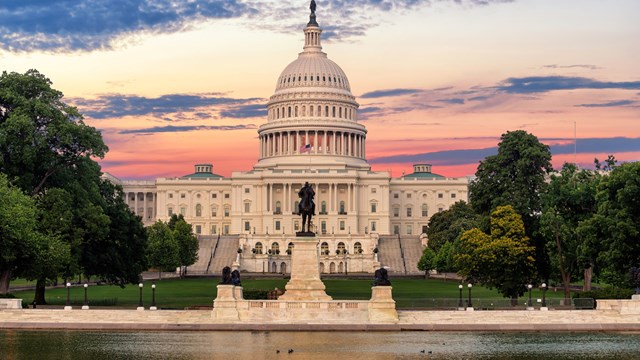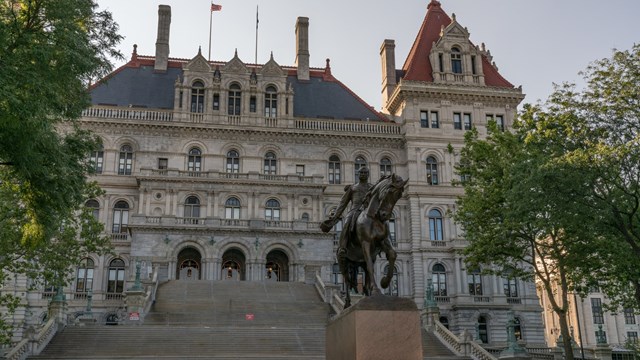
Even though 2022 started off with a backlog of court proceedings and legislative sessions after months of COVID closures and related scheduling issues, a number of cases and bills of interest to the multifamily housing community have gone through or are in the process of being decided. Here are some that boards, managers, owners, and residents should follow:
NY Co-op’s Procedural Choices Hinder Its Damages Claim
Attorneys Deborah Koplovitz and Andrew Freedland, partners in New York City law firm Herrick, Feinstein, write in the New York Law Journal of a recent ruling in a case involving Brooklyn co-op Trump Village Section No. 4 and a shareholder it claims made misrepresentations on his purchase application that caused the co-op to waive its right of first refusal and thus incur monetary damages.
Koplovitz and Freedland point out that the substance and procedure of the claims that the co-op proffered might have played a role in the April 20, 2022 judgment for the defendant in the matter of Trump Village Section No. 4 v. Gene Vilensky a/k/a Gene Vilenskiy by Justice Ingrid Joseph of the Supreme Court, Kings County.
The case alleges that the defendant listed himself as the only occupant of the apartment he was applying to purchase in 2014, agreeing that any false information or omission of material information in the application could result in its rejection, revocation of its approval, or termination of the proprietary lease after closing.
After approving the application, thereby waiving its right of first refusal, the co-op discovered that the defendant (having since closed title on the shares) was renting his unit out on Airbnb, both in violation of the proprietary lease and in refutation of his application representations.
Rather than seeking to terminate the proprietary lease and recover possession of the defendant’s apartment in a landlord-tenant proceeding, the co-op sought monetary damages and rescission of its waiver to right of first refusal. Even though lower courts denied the defendant’s motion to dismiss, citing the misrepresentations the defendant made in his purchase application that caused the co-op to waive its right of first refusal, Justice Joseph found for the defendant, concluding that the co-op didn’t show sufficient proof of damages relative to its waiver of its right of first refusal, and that the rescission claim was not legally viable.
As Koplovitz and Freedland contend, Trump Village Section No. 4’s “choice to request rescission of the occupancy agreement instead of pursuing a holdover case appears to have been a time-consuming and likely costly one, since Justice Joseph also awarded legal fees to Mr. Vilensky as the prevailing party.”
Sponsor Board Representation Limited in Nolita Condo
Attorney Peter Mahler of law firm Farrell Fritz, P.C. in Uniondale, New York writes about a First Department decision in Tsui v Chou that enjoined the sponsor-defendant from controlling the board of directors of her six-story downtown Manhattan condo formed in 1986. The case asserts that the sponsor and several of her family members who own units in the building made up the six-member board, even though the offering plan and bylaws require the sponsor to relinquish board control five years after the first closing or after 75% of the units close, whichever happened first. The governing documents also prohibit the sponsor from casting votes to elect a board majority. The plaintiffs additionally challenged the defendants’ engagement of a property management company owned by the sponsor’s husband.
After a bench trial, writes Mahler, Manhattan Commercial Division Justice Joel M. Cohen found that the sponsor and her family improperly maintained board control by failing to conduct board elections when required for seats held by the sponsor’s family members, and otherwise failing to conduct staggered board elections in compliance with the procedures set forth in the offering plan and bylaws.
In his judgment, Justice Cohen enjoined the sponsor from casting votes for board seats representing the interest attributable to her unsold units unless and until the offering plan is amended to identify which units are withheld from sale; ordered a reset election for all board seats; and ordered that for the six annual elections following the reset election, no more than two of the sponsor, her husband, and other family members may sit on the six-member board at any time. He also ordered that the management agreement with the husband’s company be abrogated and that the new board determine whether to continue with the husband’s company or another.
Recent NYC Case Reaffirms the Business Judgment Rule
In the 2021 case of 800 Grand Concourse Owners v. Thompson, the co-op board voted to terminate a shareholder’s stock and lease due to the shareholder bringing a series of frivolous and duplicative lawsuits against the board and its members. This resulted in the board incurring considerable expense and the loss of insurance coverage. (For more on the damage that frequent and ongoing litigation can do to a community, see this issue’s companion article, “The Impact of Litigation in Co-ops & Condos.”)
Attorney Geoffrey Mazel, founding partner of New York law firm Hankin & Mazel PLLC and counsel and executive member of the Presidents Co-op & Condo Council (PCCC), says, “The court specifically noted that the board followed proper procedures and had acted in good faith within the scope of their authority and in the best interests of the other shareholders. In addition, the court noted that the shareholder was provided multiple opportunities to be heard, to defend, and to abate the objectionable conduct. In light of all this, the court found that the board’s decision to terminate the shareholder’s stock and lease was protected by the Business Judgment Rule, and deferred to the board’s finding and decision.”
Co-op & Condo Group Sues NYC Over Local Law 97
Mazel is also tangentially involved in a lawsuit recently filed by PCCC members Glen Oaks Village Cooperative and Bay Terrace Cooperative Section I, both in Queens, along with a Manhattan mixed-use-building owner. While he is not representing the plaintiffs in this case, he is helping to get the word out and to champion for the cause.
The suit focuses on the financial onus put upon the city’s large buildings or building complexes—many of which are co-ops or condos populated by middle-income families who are already feeling strained from other rising costs—by Local Law 97 (LL97) enacted in 2019. The law requires buildings over 25,000 square feet to cap carbon emissions or face steep penalties, with the goal of achieving 80% emissions reduction by 2050. The first cap takes effect in 2024, with annual fines for excess emissions kicking in in 2025. Even if buildings already took measures to reduce emissions and complied with laws in effect prior to LL97, the law as it stands still forces them to take on the significant expense and disruption of major renovations and retrofits to comply or pay fines that escalate as the caps become more stringent.
As we’ve previously reported (https://cooperatornews.com/article/climate-act-compliance), New York City’s buildings produce 70% of the city’s carbon emissions, which is one reason climate legislation focuses on these structures. However, luxury buildings like 838 Fifth Avenue, 101 Warren Street, Trump Park Avenue, and Trump Tower contribute to this output disproportionately, according to website 6sqft. And, as the lawsuit points out, LL97 fails to account for building factors such as density, hours of operation, or the specific nature of a building’s occupancy—effectively penalizing more efficient buildings that house more people or contain essential businesses that necessarily use more energy, like grocery stores, laundromats, and restaurants.
“The one-size-fits-all algorithms used to determine greenhouse emissions do not work for many buildings,” says Bob Friedrich, president of Glen Oaks Village and co-president of PCCC. “LL97 requires older cooperatives to undertake costly retrofitting of heating, hot water, and ventilation systems to meet current building standards, regardless of need or ability to pay for such equipment. The burden of compliance sits squarely on the shoulders of working-class families living in some of New York’s older buildings, and there is no way to escape the crippling penalties imposed.”
In their suit filed on May 19, 2022, the plaintiffs allege that the State’s Climate Leadership and Protection Act of 2019 preempts LL97 and should forbid the imposition of inconsistent requirements on municipalities such as New York City. They also allege that key provisions of LL97 are vague and ambiguous, making it impossible for owners to reasonably understand what is required of them and opening the door for arbitrary enforcement.
Andrew Rudansky, spokesperson for the New York City Department of Buildings (DOB), which is named as a defendant in the case, says that “in NYC, our buildings are the largest emitter of the greenhouse gasses that contribute to climate change, and we are committed to fully enforcing Local Law 97.” He adds that the DOB has been assembling additional guidance for property owners regarding the law and notes that it will respond to the case after it has been served.
The suit also alleges that since the penalties aren’t earmarked for any specific environmental goal, the law actually operates as an improper tax imposed by the City without the necessary authorization from the State.
“While my clients recognize the issue of addressing climate change, Local Law 97 does so in name only,” says Randy M. Mastro, a partner at international law firm Gibson, Dunn, & Crutcher LLP and lead counsel for the plaintiffs. “New York State has already enacted a comprehensive greenhouse emissions law that covers the field. But the City has massively overreached here and far exceeded its constitutional and statutory authority with this Local Law, which will only make New York City less affordable, drive out essential businesses, and unfairly penalize owners who have always complied with applicable emissions laws, only to now face this onerous new City law.”
SAFER in Condos Act Proposes HUD Loans for Structural Repairs
U.S. Representatives Charlie Crist (D-Fla.) and Debbie Wasserman Schultz (D-Fla.) introduced the Securing Access to Financing for Exterior Repairs (SAFER) in Condos Act earlier this year, in response to the catastrophic condo collapse in Surfside, Florida in June 2021 that killed 98 people. Described as “legislation that will make it easier for condominium owners to afford special assessments for structural and safety repairs,” the Act proposes low-interest loans to fund repairs through two programs guaranteed by the U.S. Department of Housing and Urban Development (HUD).
Multifamily housing advocacy groups such as the Community Associations Institute (CAI) were involved in crafting and championing the legislation and praise its introduction. “Since the tragic condominium collapse in Surfside, Florida,” says Thomas M. Skiba, CAE, CAI’s chief executive officer, “CAI has worked closely with state and federal lawmakers to introduce critical legislation that supports condominium safety for the millions of people who call these communities home. We are pleased that Reps. Crist and Wasserman Shultz have introduced this impactful legislation that helps us honor the memories of the 98 people who lost their lives last June and will help prevent another tragedy. We’re hopeful that the bill moves forward expeditiously.”
In a press statement, Rep. Wasserman Shultz says, “While we still mourn all those we lost in Surfside, the harsh reality is that untold numbers of aging condos just like Champlain Towers South may face similar structural safety problems… This legislation that Congressman Charlie Crist is leading will take meaningful steps to help prevent that from ever happening again by helping make it easier for condo owners to afford special assessments when costly structural and safety repairs arise.”
Condo’s 10-Yr Legal Battle Against Lowell, MA Nears End
Grand Manor Condominiums in Lowell, Massachusetts, was built in the 1980s. According to reporting in the Lowell Sun, residents there were unaware that they were living on top of a municipal landfill dating to the 1940s and 1950s until a 2008 drainage system installation at the site. Only then was it discovered that the property’s soil contained hazardous materials including lead and arsenic.
In 2009, according to the Sun, the state Department of Environmental Protection declared the city of Lowell to be responsible for the cleanup as well as for the decrease in home values at Grand Manor. The condo association then sued the city for that loss in 2012. A trial began in 2016 after the parties could not reach an out-of-court settlement.
The jury in that trial sided with the city, saying that the statute of limitations had expired. The condo association appealed in 2017, claiming that it had filed its suit well within the statutory period. The Supreme Judicial Court agreed and remanded the case back to the Lowell Superior Court for another trial in 2018.
In that trial, the association sought $2.8 million in property damages associated with the reduced home values due to being situated on hazardous soil. Although the jury sided with the plaintiffs, it awarded the condo only half that amount—just over $1.4 million, according to the Sun. Attorneys for the association moved to add prejudgment interest to the award, which would accrue since the trial began in 2012. While the court accepted the city’s motion to deny that interest, Grand Manor appealed and was granted 12% simple interest by the Massachusetts Court of Appeals, meaning that the 31 plaintiffs will receive an additional $170,346 for every trial year since 2012.
A final court order is expected soon, according to the Sun.
Meanwhile, Lowell is in its “final remediation” phase of cleanup at the site, according to senior environmental planner Sarah Brown, followed by a plan for routine soil sampling.
“We have to go through a public procurement process here at the city, we have to put the project out to bid, so that will be the next step,” Brown tells the Sun. “We actually haven’t discussed how frequently we were going to conduct that sampling. Once we install the system, we have to get it started first and we have to see what those initial results are first before we determine what our sampling program is going to entail.”
Defect Statute of Limitations Extended in NJ
Early in the year, Governor Phil Murphy signed into law an amendment to the New Jersey Statute of Limitations that effectively extends the time that planned real estate development associations—including condos and co-ops—have to file certain claims against developers. Specifically, it sets the start of the six-year clock to the date that the owners/shareholders take control of the board, rather than the date of substantial completion of the development.
Thought to be a reaction to the 2017 New Jersey Supreme Court decision in Palisades at Fort Lee Condominium Association v. 100 Old Palisade, LLC, the amendment echoes similar legislation making its way through the Massachusetts Legislature, as mentioned in our 2021 Legal Roundup (https://cooperatornews.com/article/legal-legislative-roundup). The Palisades decision set substantial completion as the date by which the six-year accrual starts, but also applied the discovery rule to such cases, meaning that the date on which any owner—even if it is the developer—knew or should have known of the defect would begin the accrual, even if the subsequent owner did not learn of the defect until a later date. This effectively shortened the time the unit-owner-controlled association had to file suit.
Now that the law in New Jersey tolls the statute of limitations on a defect claim to when the unit owners take control of the board, “it’s a real sea change,” says Scott Piekarsky, partner at Hackensack law firm Phillips Nizer LLP. “This amendment really benefits community associations and owners. Of course, it doesn’t affect a case that was already subjected to a final judgment, a dismissal,” he continues, “and we still do have out there this 10-year construction statute of repose, which provides that all construction defect claims must be brought within 10 years of substantial completion. You might have some interplay—that’ll remain to be seen—but this new legislation now signed into law is a terrific thing for communities in this state.”
Darcey Gerstein is Associate Editor and a Staff Writer for CooperatorNews.









Leave a Comment